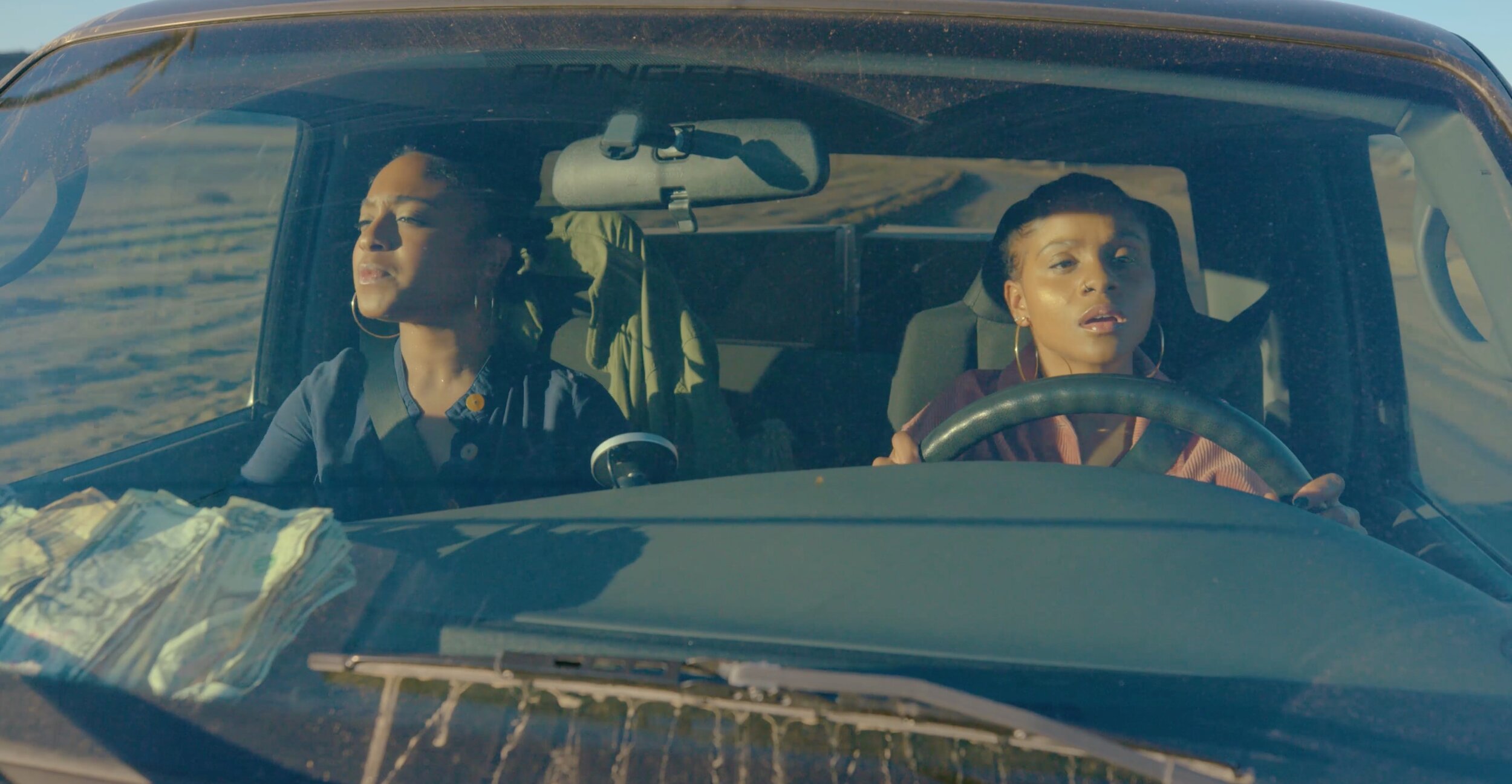Charia Rose's ‘WITH(OUT) YOU’ Highlights Black Sisterhood and Its Complexities
Written by Nia Tucker
Despite being just under 10 minutes, “WITH(OUT) YOU,” is able to encapsulate the tough and intimate Black sisterhood that other films often get wrong. In an industry where Black women are often reduced to caricatures of themselves and presupposed notions of their behaviors, Charia Rose is able to create two dynamic characters—Delphine and Bavette—against a backdrop of necessity out of the follies of capitalism and attempts to chase artistic dreams amongst that struggle.
It’s a film that leaves us wondering who the villain is—if there even is one. Taylor Polidore as Bavette acts as the passionate, quick-to-tussle half of this pair as she is willing to do anything for her money and success. Delphine, played by Geffri Maya, is soft-spoken, seemingly the pawn in this vague crime that the two are committing, and wanting to escape, even if it is at the cost of the pair’s sisterhood.
They come across as two sides of one coin, but at their root, Delphine has dreams of being a writer and Bavette of being a musician. This speaks to the ways in which capitalism and expectations of a constant ‘grind,’ often plague us in the Black community. It’s a matter of working towards overcoming racial capitalism and giving into any mission that could release them from those chains—even if that means traveling to the middle of a desert to bury something illegally.
This is the source of major tension in the film -- this battle of morality between wanting to survive and wanting to just be able to chase dreams that just don’t provide in the same ways financially. Do they continue to do this mysterious work that immediately reaps financial reward, or do they go against the grain and do what they love despite that monetary struggle?
In between character dialogue, we are exposed to the internal struggle within Delphine and Bavette through varied interpolated shots whether they be screaming towards the camera, standing intertwined with one another, or staring stoically. It reveals that it is much harder on the outside to hold your sister accountable for their actions, and easier to bottle it in to maintain that relationship. But it is Delphine who ultimately breaks the gap between these two worlds of morality, which leaves them to evaluate their need for one another.
It should be noted that alongside the stellar chemistry of Maya and Polidore, the styling of said characters allows for a genuine representation of Black women, from a Black women’s lens. The close-up and choker shots demonstrate a closeness and familiarity with Black skin, hair and makeup. And the range of emotions that Black women do have and express as any other human but are often not permitted to express in other films and media.
“WITH(OUT) YOU,” is a film that validates Black sisterhood and its duality. Their relationship plays out against a vast and empty desert, leaving their emotions bare and with nowhere to escape; their conflict is one that must be addressed in order to move forward. That sense that as Black women, we must be critical of one another and love one another in ways that others will not and cannot do for us. While we only see these characters for a brief moment, it is clear that the work behind this film was put in to portray Black women as they are and can be beyond typical media tropes.


